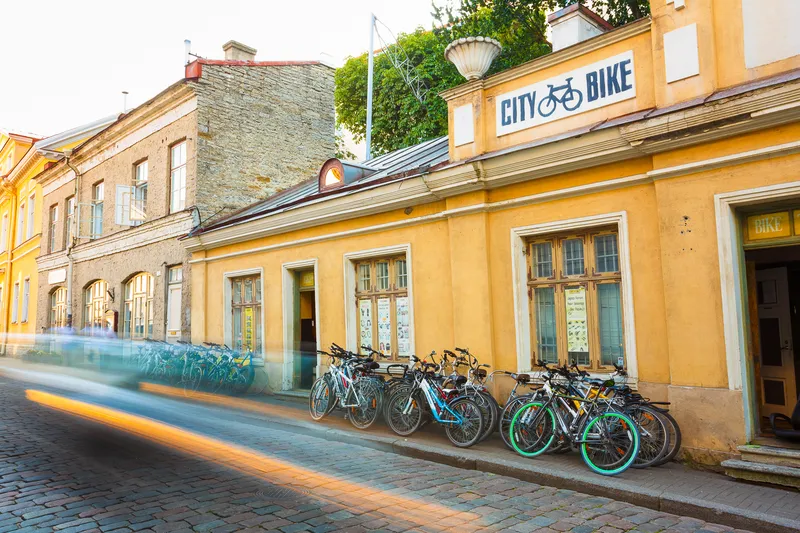New research by Frost & Sullivan, European Bike Sharing Market, Forecast to 2025, indicates that the bike sharing fleet will more than double in size from 151,302 units in 2016 to 341,250 units in 2025. Southern and Western Europe have high public bike sharing service (BSS) activity. About 196 cities in Southern Europe have more than 35,000 rental bikes; in Western Europe, 150 cities have nearly 70,000 rental bikes. Spain and France are the strongest markets, but the UK, Germany and Italy are expanding quic
February 7, 2017
Read time: 2 mins
New research by 2097 Frost & Sullivan, European Bike Sharing Market, Forecast to 2025, indicates that the bike sharing fleet will more than double in size from 151,302 units in 2016 to 341,250 units in 2025. Southern and Western Europe have high public bike sharing service (BSS) activity. About 196 cities in Southern Europe have more than 35,000 rental bikes; in Western Europe, 150 cities have nearly 70,000 rental bikes. Spain and France are the strongest markets, but the UK, Germany and Italy are expanding quickly.
As densely populated urban centres all over the world grapple with issues of rising fuel consumption and carbon emissions, green mobility solutions such as public bike sharing service (BSS) are rising to prominence. This shift away from personal cars towards sustainable mobility solutions is bolstered by the high parking fees, volatile fuel costs and growing congestion in busy urban areas.
Although BSS enjoys escalating demand, high insurance costs could prove a deterrent to its wide-scale adoption. Furthermore, safety guidelines of bike sharing programmes are often not aligned with those mandated by insurance schemes, necessitating deeper analysis and resolution of the insurance issue.
“Urban commuters are considering multiple mobility options to optimise travel time and convenience for short distance travel of less than five kilometres,” said Frost & Sullivan mobility research analyst Debanjali Sen. “Consumer interest has prompted several BSS operators to explore integration of bike sharing with public transit and other modes of shared transport such as car sharing/ride sharing on a unified digital platform for ease of payment and bookings.”
As densely populated urban centres all over the world grapple with issues of rising fuel consumption and carbon emissions, green mobility solutions such as public bike sharing service (BSS) are rising to prominence. This shift away from personal cars towards sustainable mobility solutions is bolstered by the high parking fees, volatile fuel costs and growing congestion in busy urban areas.
Although BSS enjoys escalating demand, high insurance costs could prove a deterrent to its wide-scale adoption. Furthermore, safety guidelines of bike sharing programmes are often not aligned with those mandated by insurance schemes, necessitating deeper analysis and resolution of the insurance issue.
“Urban commuters are considering multiple mobility options to optimise travel time and convenience for short distance travel of less than five kilometres,” said Frost & Sullivan mobility research analyst Debanjali Sen. “Consumer interest has prompted several BSS operators to explore integration of bike sharing with public transit and other modes of shared transport such as car sharing/ride sharing on a unified digital platform for ease of payment and bookings.”








